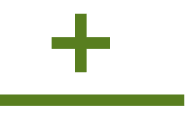Modular plant design, an alternative to traditional stick-built construction, is gaining popularity, particularly in the chemical, oil, and gas industries. The modular approach involves assembling plant components on steel frameworks known as skids. Skidded units are built off-site, usually in a fabrication shop, and then transported to the project site for final assembly and commissioning.
What Is Modular Plant Design?
Modular plant design differs from traditional stick-built construction in creating self-contained process units in an off-site, controlled factory setting. This innovative process allows builders to maintain high safety and quality standards.
It’s important to note that while modular construction has several advantages, it is not appropriate for all capital projects. A traditional construction approach may be necessary for large-scale projects that require on-site construction teams.
The Modular Plant Design Process
The modular construction process involves several steps that require planning and precision from design to construction and completion. During the design and front-end planning phase, advanced 3D modeling and digital twins are used to ensure the accuracy of the final design. These technologies are needed for visualizing and planning the complex assembly of components within each module.
During off-site construction, process equipment, instrumentation, piping, valves, and electrical wiring are mounted within a structural steel framework (skid). Each skid is a self-contained process unit enhanced with features like heat tracing, thermal insulation, and integrated control systems.
Once the modules are completed, they are transported to the project site for assembly and to align with the site’s existing utilities and plant infrastructure. Depending on requirements, multiple skids may be connected to form a more extensive process system or erected as a standalone unit. After assembly, rigorous testing and fine-tuning of the modules are performed to ensure they function correctly as part of the integrated plant.
The Future of Modular Plant Design
As modular construction and technology advance, the integration of the Internet of Things (IoT), artificial intelligence (AI), and automation is expected to continue. These technologies are expected to improve plant performance, making operations more efficient and adaptable to changing conditions.
In addition, because modular construction may provide environmental benefits by reducing onsite waste and energy consumption during critical construction stages, modular plants may help to meet sustainability standards in the future.
Given its suitability for specific applications and projects, modular construction is expected to continue to gain popularity. This trend will drive additional innovation and broader adoption across several industries.
Partner With H+M Modular
If you want to learn more about modular plant design or expand your current operations to include modular units, you should work with a contractor with extensive experience delivering customized modular solutions that meet even the most complex project requirements.
H+M Modular specializes in designing and fabricating truckable modules, providing exceptional capital project execution from concept to start-up for clients across the United States. From our engineering and fabrication headquarters in Houston, Texas, we can transport your project to wherever you are. For over three decades, we have provided end-to-end solutions for a wide range of project sizes within the energy, chemical, and terminals and logistics industries.
We are dedicated to providing trust, experience, and efficiency through all stages of engineering, procurement, and construction through our proven strategic EPC approach. Our comprehensive services, including front-end planning, detail engineering and design, procurement, fabrication, and construction, allow us to take your modular process plant project from conception to completion, tailoring engineering and design solutions to meet your unique needs.

The H+M Industrial Team
For over three decades, we have provided best-in-class capital project management services to Energy and Chemical industries through our proven EPC approach. We are dedicated to providing trust, experience, and efficiency through all stages of engineering, procurement, and construction--on budget and on time.

Partnering with H+M Modular
H+M Modular, a division of H+M Industrial EPC, specializes in custom fabricated equipment, modules, and skids for energy and chemical industries. The approach emphasizes the potential for decreased risk through more controlled fabrication, leading to enhanced quality and safety, reduced labor costs and construction times, improved labor availability, and solutions to geographic challenges. We are dedicated to providing trust, experience, and efficiency through all stages of traditional and modular construction projects using our proven EPFC approach, If you're considering modular fabrication, we invite you to connect with us to learn about how modular solutions can improve project outcomes.





